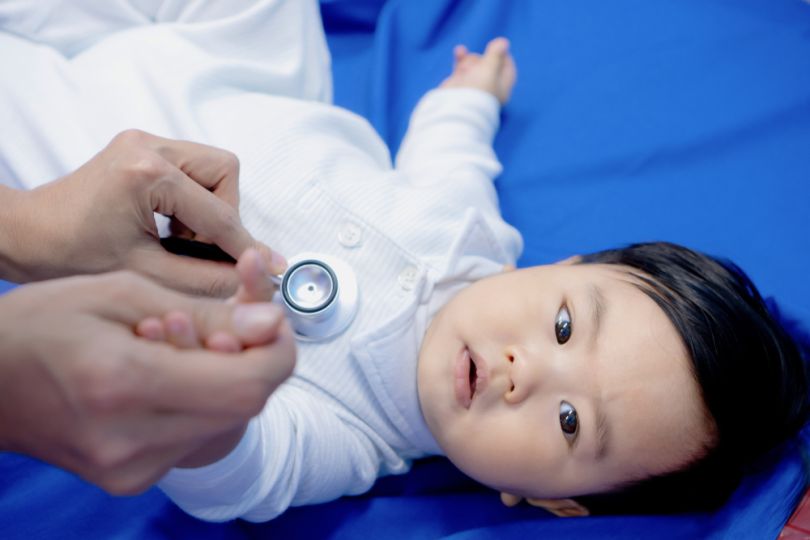
The Centers for Disease Control and Prevention (CDC) report that congenital heart defects affect nearly 1% of―or about 40,000―births per year in the United States. Children who are less than 1 year old consist of almost 50 percent of deaths resulting from congenital heart defects.
Artificial intelligence may hold the key to faster, more accurate diagnoses than those of medical professionals, which could cause survival odds for affected infants to soar. Dr. Kolawole Oyelese, a perinatologist with Atlantic Maternal Fetal Medicine in New Jersey, offers sobering stats: “While only about 1 percent of babies will be born with a congenital heart defect, almost 25 percent of those children will have a heart defect that requires surgery to correct it within the first year.”
Oyelese cautions that, left undetected, heart defects in babies could cause death within the first month. By diagnosing heart problems in utero, doctors can make informed decisions for lifesaving treatment. Currently, medical expert use ultrasound imaging for fetal diagnosis, but human error can cause some heart defects to escape detection. Since treating congenital heart defects within a week after birth is proven to boost the prognosis, developing quicker, more precise technology for diagnosis has long been a priority.
Machine learning feeds a computer data and uses statistical techniques to help it "learn" how to get progressively better at a task, without having been specifically programmed for that task, eliminating the need for millions of lines of written code. Earlier problems with applying machine learning to analyze heart defects in children stemmed from how rare-occurring this condition is. Without sufficient data points to train the AI, inaccuracies had plagued hopes of clinical use.
Researchers from RIKEN use a computer process called “object detection” that mimics human observation skills, enabling the AI to analyze fetal heart images.
The RIKEN Center for Advanced Intelligence Project (AIP), in collaborating with Fujitsu Ltd. and Showa University, dared to explore whether a more accurate solution was possible. Despite the constraints of relatively small and incomplete collections of data, this team successfully developed new machine learning technology that can accurately predict the presence of congenital heart defects.
A typical diagnosis involves a fetal heart expert using the comparison of normal and abnormal fetal heart images in addition to their instincts as trained professionals. Researchers from RIKEN instead use a computer process called “object detection” that mimics human observation skills, enabling the AI to analyze fetal heart images.
Masaaki Komatsu, a RIKEN AIP researcher who led the project, states in a press release, “This breakthrough was possible thanks to the accumulated discussions among the experts on machine learning and fetal heart diagnosis. RIKEN AIP has many AI experts and opportunities for collaboration, like this project. We hope that the system will go into widespread use by means of the successful cooperation among clinicians, academia, and the company.”
The team plans to roll out clinical trials in university hospitals throughout Japan. By obtaining more fetal ultrasound images in the database through these trials, they expect increased accuracy for the AI system.
While the RIKEN team believes this system could soon account for a significant drop in missed diagnoses, Oyelese makes a case for human professionals not being shown the door quite yet. “While [AI] may help make the diagnosis more accurate, it is still not a replacement for years of expertise, clinical experience, or training.”



